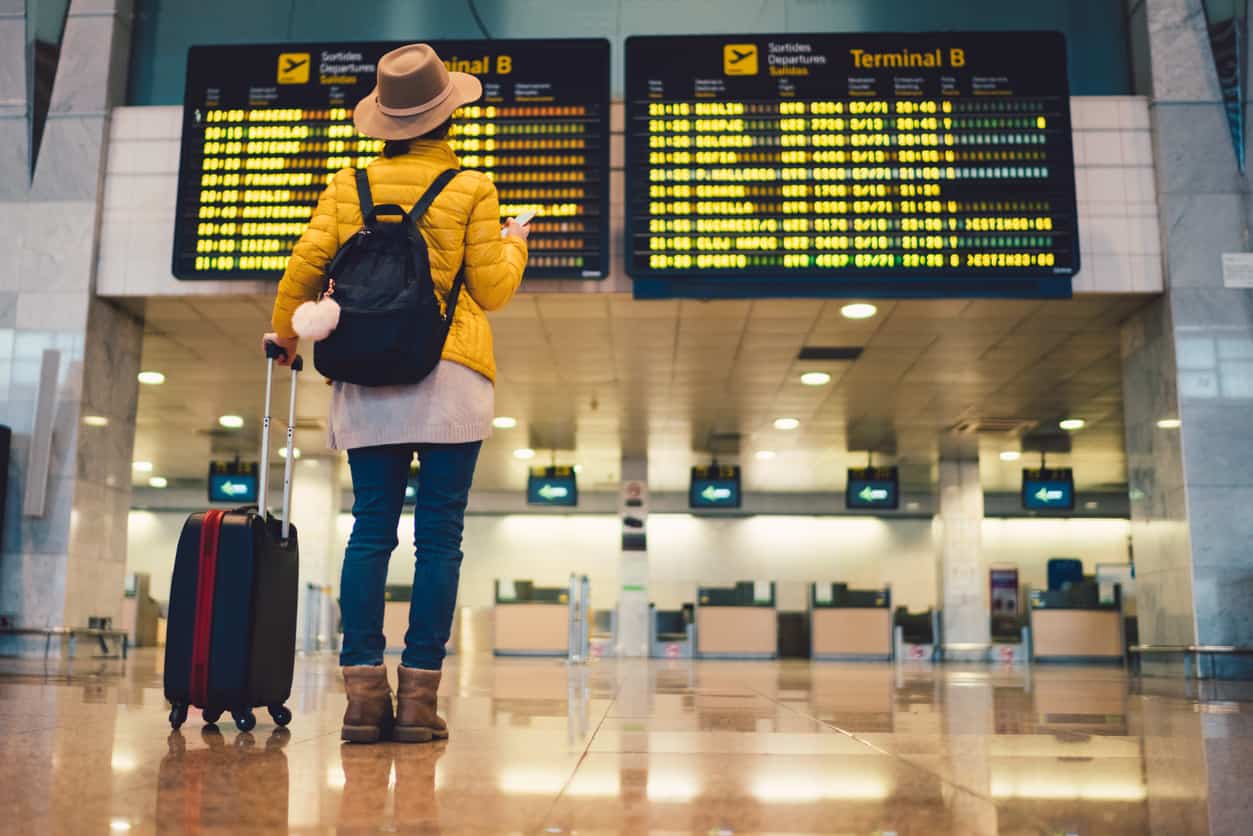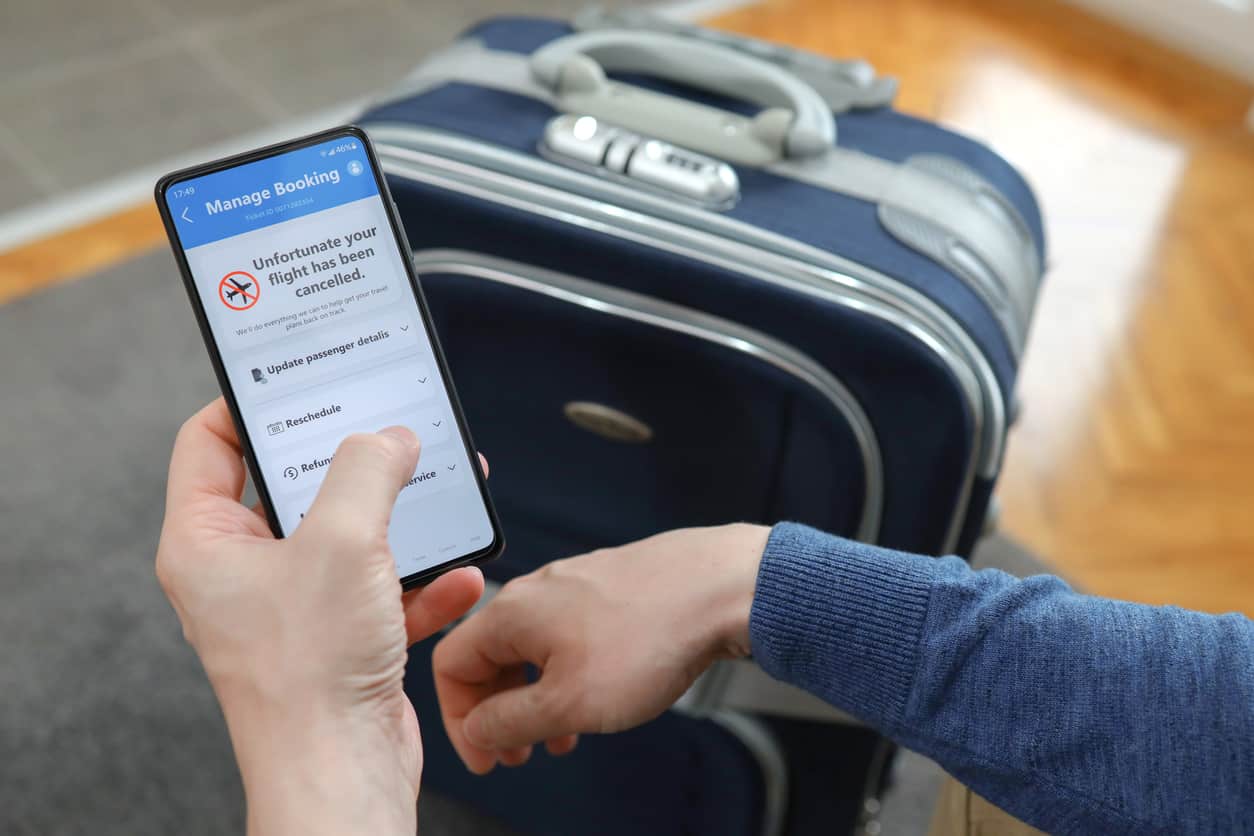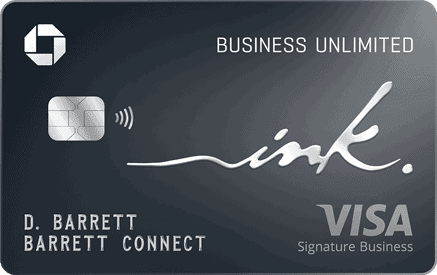
10xTravel is part of an affiliate sales network and receives compensation for sending traffic to partner sites, such as CreditCards.com. This compensation may impact how and where links appear on this site. This site does not include all financial companies or all available financial offers. Terms apply to American Express benefits and offers. Enrollment may be required for select American Express benefits and offers. Visit americanexpress.com to learn more. All values of Membership Rewards are assigned based on the assumption, experience and opinions of the 10xTravel team and represent an estimate and not an actual value of points. Estimated value is not a fixed value and may not be the typical value enjoyed by card members.
Note: Some of the offers mentioned below may have changed or may no longer be available. The content on this page is accurate as of the posting date; however, some of our partner offers may have expired. You can view current offers here.
A delayed or canceled flight can be the straw that breaks the traveler’s back. As if traveling isn’t stressful enough, such inconveniences can make less-than-ideal situations even worse.
However, with the right strategy and an understanding of your rights, you can mitigate stress and maximize compensation.
Let’s look at what to do if your flight is delayed, what to do if your flight is canceled, and what compensation you’re entitled to.
Flight Cancellations and Delays
Adverse weather conditions, mechanical issues, knock-on flight delays, pilots exceeding their legal working hour limits—there are a variety of causes for flight cancellations and delays. According to the Department of Transportation’s (DOT) Air Travel Consumer Report for 2022, only 76.72% of flights in the United States arrived on time. Likewise, flights had a cancellation rate of 2.7% in 2022, up from a pre-pandemic rate of only 1.9%.

In short, if you travel often enough, delays or even cancellations will likely be an inevitable part of the experience. To mitigate their effect, it’s crucial to understand your rights as a passenger.
Your Rights as a Passenger
In the U.S., passenger rights and federal requirements for airlines to follow in the event of delays or cancellations used to be fairly scarce. However, as of April 2024, new DOT legislation has strengthened passenger rights in the U.S.
Airlines must compensate you in the following instances:
- If your flight is canceled and you don’t wish to be rebooked by the airline onto a different flight
- If “significant changes” are made to your flight. This includes: changes in departure or arrival times that are more than three hours domestically and six hours internationally; departures or arrivals from a different airport; increases in the number of connections; instances where passengers are downgraded to a lower class of service; or connections at different airports or flights on different planes that are less accessible or accommodating to a person with a disability.
- If an airline overbooks a flight and you are involuntarily “bumped” (denied boarding)*
* Exceptions to this rule noted by the DOT are a) “If you are bumped involuntarily and the airline arranges substitute transportation that is scheduled to get you to your final destination (including later connections) within one hour of your original scheduled arrival time, there is no compensation,” b) “on flights using aircraft with 30 through 60 passenger seats, compensation is not required if you were bumped due to safety-related aircraft weight or balance constraints,” and c) “charter flights, or […] scheduled flights operated with planes that hold fewer than 30 passengers.” (DOT “Fly Rights”)

For both delays and cancellations, you’re entitled to a full cash refund of the ticket purchase price, minus the value of any portion of transportation already used. The refunds must include all government-imposed taxes and fees as well as airline-imposed fees, even if the taxes or fees are refundable to airlines. Likewise, refunds must either be in cash or the original payment form, such as frequent flyer miles—so you can forget about those pesky travel vouchers.
In the event you do opt for a travel voucher in lieu of a refund, the DOT requires that they are valid for five years.
The other good news is that refunds are automatic. No more will you have to jump through hoops to even get a chance at receiving some form of compensation. Airlines are required to refund you within seven business days for credit card payments and a maximum of 20 calendar days for all other payment methods.

Prepare for Potential Flight Disruptions
You can’t guarantee against the unexpected, but you can prepare for it. Having travel insurance is a crucial way of protecting you against the unexpected costs of delayed or canceled flights.
Depending on your policy, travel insurance can offer coverage for a range of situations, such as:
- Lost, damaged or delayed baggage
- Canceled or interrupted trips
- Delayed common carrier travel
- Medical coverage including emergency medical evacuation
- Rental car accidents
Travel insurance can help where the airline won’t. Specifically, a robust insurance policy could reimburse you for thousands of dollars worth of costs from lodging and meals, to transportation and knock-on non-refundable costs, such as prepaid tours.
Such travel protections are often included on premium travel credit cards, such as the Chase Sapphire Preferred® Card. These travel protections can save you the cost of taking out an extra insurance policy, as long as you charge your travel expenses on the card.
Sign up for airline alerts when you purchase a ticket.
What to Do if Your Flight is Canceled
If you arrive at the check-in desk or gate only to find that your flight has been canceled, there are steps you can take to prevent a bad situation becoming worse.
However, it’s important to understand that speed is crucial to your success. Remember that when it comes to securing a seat on another flight, you’re competing with everybody else whose flight has been canceled.
Upon receiving a cancellation notification, your first call should be to head to the airline’s dedicated customer service desk. Understand that rebookings are offered on a first-come-first-serve basis, so the quicker you can talk to the airline, the more likely it will be that you’ll secure another flight. For this reason, you need to make use of your time spent waiting in line.
Using your smartphone, you should pursue at least one (if not a combination of) the following strategies:
- Call your airline’s customer service hotline. A lesser-known trick is to call their international customer service number, as you’ll often be able to talk to an agent quicker compared to calling their U.S. number.
- Contact your airline through their app. Chatbots and rebooking options via an app can be a faster alternative to waiting in line or calling a phone agent.
- Message your airline via Twitter. Tweeting can help you gain a quicker response to resolve the issue when phone lines are busy.
- Conduct your own research. Look for alternative flights and routes, as well as different departure and arrival destinations. This can help expedite the process with phone or desk customer service agents.
Once you’re able to talk to an agent, there are a variety of options available.
The good news is that, when it comes to cancellations, airlines are required to refund you if you choose not to fly on an alternative booking. That means if you’re not in a rush to fly, you could simply take the cash refund and book a different flight out of your own pocket.
It’s important to understand that you’re entitled to a full cash refund in such a situation. While airlines may try to refund you with travel vouchers, you’re fully within your rights to demand a cash refund.
That said, keep in mind that last-minute flights tend to be priced higher. If you need to catch your flight as soon as possible, or you want to avoid paying a higher price for a last-minute booking, see if the airline can book you on an alternative flight. This is where interline agreements can be your friend. For instance, if American Airlines can’t offer you a seat on one of their flights, they may be able to book you a seat for no extra cost on a United Airlines flight.
If you conduct your own research, you can also suggest alternative routes and flights to your customer service agent. In some cases, you might find a better deal than what the carrier offers you, and your agent will likely be happy to assist you in securing that deal.
Likewise, when dealing with customer service agents, it’s important to be polite. It might sound obvious, but calm and respectful interactions are going to be far more productive in getting you booked onto another flight.
Similarly, keep in mind that when booking any flight, it’s always best to book with the airline directly. Booking through third parties like Expedia can make your life harder, as you’ll be dealing with multiple cancellation policies. This can make receiving refunds more complicated.
What to Do if Your Flight Is Delayed
Luckily, delays aren’t so much of a gray zone as they used to be.
Whereas the DOT previously claimed that ambiguously defined “significant delays” were assessed on a case-by-case basis, your rights are now clear in the event you experience a delay.
The policy pertaining to delays now comes under the category of “significant changes.” If your departure or arrival time is delayed by more than three hours for domestic flights and six hours for international flights, you’re entitled to a full refund of the ticket purchase price, minus the value of any portion of transportation already used.
Of course, you can still do yourself a favor by reducing the likelihood of delays in the first place.
The earlier your flight departs in the day, the lower the probability of delays. Delays often happen due to a ripple effect, whereby earlier flights that have minor delays cause greater delays to other flights as the day goes on. Similarly, booking earlier flights gives you more options when it comes to rebooking yourself on a different flight, as there will be more flights available on the same day, reducing the likelihood of an overnight stay.
However, even early flights can have significant delays.
Luckily, most major U.S. airlines offer meal vouchers, complimentary accommodation for overnight delays, transport to and from your accommodation, as well as rebookings for no additional charge.
It’s important to understand that these compensation benefits apply to delays within the airline’s control, such as staffing issues or certain mechanical malfunctions. Adverse weather conditions wouldn’t qualify as controllable. When it comes to delays, the length of the delay, the length of the flight, the airline, and any other contextual factors play a large role in determining the extra compensation benefits you’ll receive.
Nevertheless, it doesn’t hurt to ask. As with flight cancellations, speed matters. Talk to the airline gate representative or the customer service desk. If a delay will cause you a significant inconvenience, research alternative flights and see if the airline would cover the costs of a new booking. There’s no guarantee they will, but there’s also no guarantee they won’t, particularly as doing so would alleviate their need to give you a cash refund.
Similarly, if you have an international flight or a domestic flight with an international end-destination on the same ticket, you’ll receive further coverage in the event of a delay.
Under Article 19 of the Montreal Convention, airlines are required to cover the damages caused by trip delays on international flights between participating countries. Keep in mind that for the Montreal Convention to be triggered, your travel needs to begin and end in countries that are members of either the Montreal Convention or the Warsaw Convention.
Chase Sapphire Preferred® Card
75,000
bonus points
after you spend $5,000 on purchases in the first 3 months from account opening.
Annual Fee: $95
How to Maximize Your Compensation
Knowing your rights and having the right paperwork is key to maximizing compensation for delayed or canceled flights.
Unless you receive vouchers or other similar forms of compensation during a delay or cancellation, you’ll likely have to first pay for any expenses upfront and then have the costs reimbursed later.
So after your (nightmare) trip is over, it’s time to gather necessary documents such as receipts, flight numbers and statements of cancellation/delay from your airline, so that you can file an insurance claim.
If you want to claim reimbursement from the airline for any additional costs incurred, you can contact their customer service team. If your claim is unsuccessful, you can take them to court or you can contact the DOT for further assistance. In some cases, airlines such as Alaska may reimburse you with frequent flyer miles for their loyalty program.
You can also file a claim with your insurance provider or through your credit card benefits administrator.
Credit cards with trip delay insurance can reimburse you and other travelers on your reservation for unexpected costs such as accommodation, transport and meals. Likewise, the best travel credit cards come with trip cancellation and interruption insurance which can reimburse you for non-refundable travel expenses made with your credit card, particularly those that fall outside of your and the airline’s control, such as illness or adverse weather conditions.
When filing insurance claims, in addition to providing the required documents, it’s crucial to file your claim within the specified claim window period. Otherwise, your claim may be invalid.
Similarly, don’t forget to check regional rules regarding passenger compensation. For example, European passenger laws such as European Union Regulation 261 can help you get between 250 euros ($269) and 600 euros ($646) worth of compensation for qualifying delays of European carriers. This is in addition to other compensation you could receive from your carrier and insurance provider.

Overnight Delay or Cancellation
According to the DOT Airline Cancellation and Delay Dashboard, nine out of 10 of the major airlines in the U.S. offer complimentary hotel accommodation in the event of a controllable overnight delay or cancellation.
Of course, the key word here is “controllable,” which is open to interpretation. For example, you’re likely to have less luck with a basic economy fare canceled or delayed due to adverse weather conditions compared to a higher class fare canceled or delayed due to a mechanical failure.
That said, being proactive is key to receiving compensation. Due to a lack of federal requirements, airlines aren’t always forthcoming with benefits. However, if you ask, you’ll often get.
That means if you have an overnight delay or cancellation, you should ask your carrier for specific compensation benefits, such as reimbursed hotel costs, transportation costs and meal vouchers. Again, if you’re polite and proactive, you’ll often receive more in return compared to just going with the flow.
Even if you’re unsuccessful in receiving compensation at the moment, you can always file a claim or contact customer services after paying the costs upfront. In some cases, they may reimburse certain costs or offer flight vouchers.
It’s also important to prioritize your comfort and well-being. If it looks like the delay or cancellation is going to require an overnight stay, be sure to secure yourself a hotel room while there’s still availability. In the worst case that your airline doesn’t cover the costs of accommodation, your credit card’s trip delay or cancellation insurance policies can come to the rescue (assuming you charged your travel expenses to the card).

Conclusion
Flight cancellations and delays are an inevitable feature of (the traveler’s) life. However, if you know your rights and have a solid game plan, you can avoid a disruption ruining your whole trip.
Keep in mind that when it comes to compensation, it never hurts to ask. And asking may in fact be the difference between receiving a meal voucher and other forms of compensation, or receiving nothing at all.
Likewise, if you have travel insurance or credit card travel protections, they’ll typically help cover any costs the airline fails to reimburse.
New to the world of points and miles? The Chase Sapphire Preferred® Card is the best card to start with.
With a bonus of 75,000 bonus points after you spend $5,000 on purchases in the first 3 months from account opening. , 5x points on travel booked through the Chase Travel Portal and 3x points on restaurants, streaming services, and online groceries (excluding Target, Walmart, and wholesale clubs), this card truly cannot be beat for getting started!
Editors Note: Opinions expressed here are author’s alone, not those of any bank, credit card issuer, hotel, airline, or other entity. This content has not been reviewed, approved or otherwise endorsed by any of the entities included within the post.









